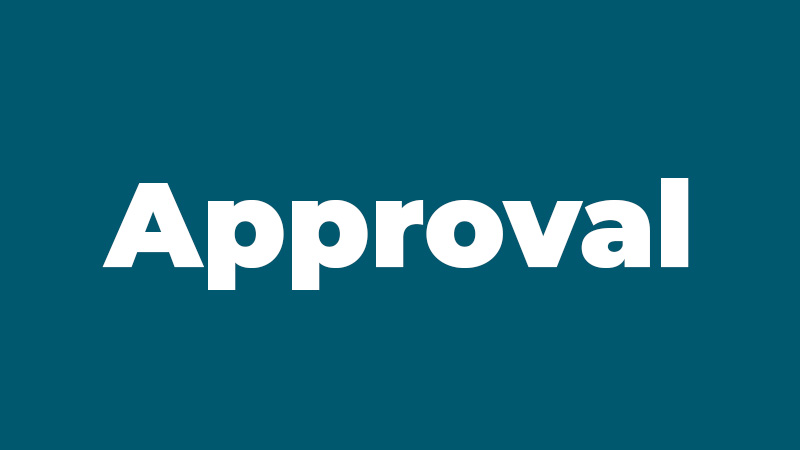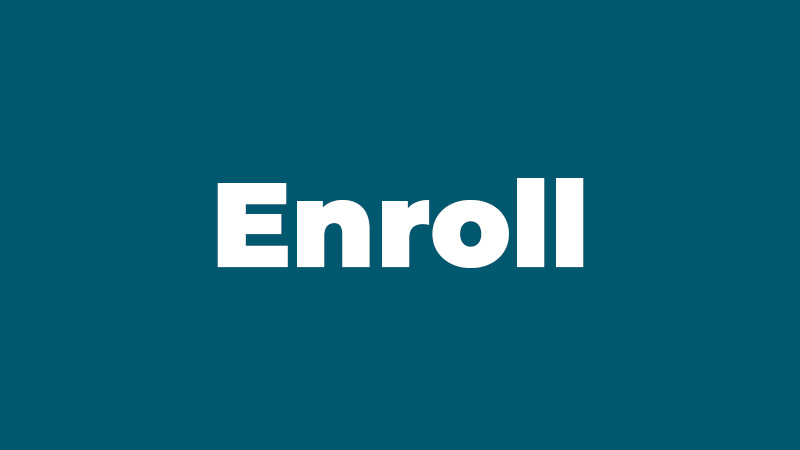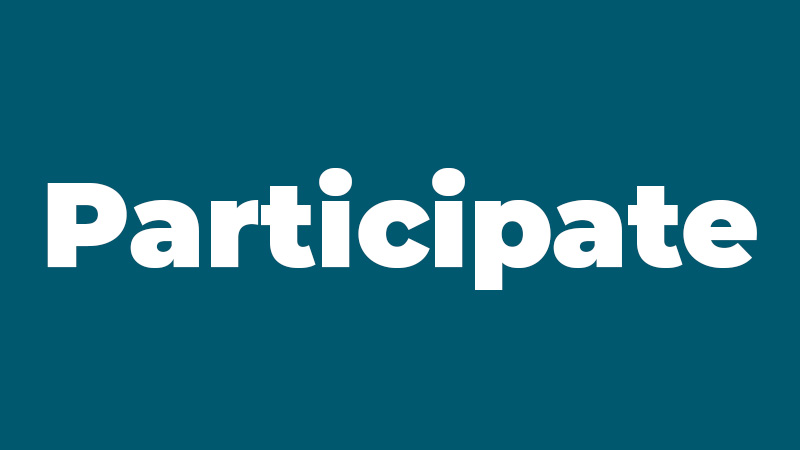MOC Projects
Seattle Children's participates in the American Board of Medical Specialties (ABMS) Multi-Specialty MOC Portfolio Approval Program (Portfolio Program). The Portfolio Program offers a single process for healthcare organizations to support medical staff involvement in quality-improvement and Maintenance of Certification (MOC) across multiple ABMS specialties.
This pathway offers a streamlined approach for organizations, such as Seattle Children's, that sponsor and support multiple well-designed quality-improvement efforts involving medical staff across multiple disciplines to work with participating ABMS member boards to grant Part 4 MOC credit to physicians (and Category 1 PI-CME credit to physician assistants) who are involved in those improvement efforts. (View a list of ABMS member boards involved in the ABMS Portfolio Program.)

Step 1: Bring your ideas to us. We will help move your idea into a project that will meet ABMS standards.

Step 2: Prepare and application and present to our community. Our staff will provide coaching as needed.

Step 3: Run your project as planned, incorporating any changes suggested by our committee. Our staff will provide coaching as needed.

Step 4: Renew your project annually for continued PDCA cycles.
Project requirements
Projects must:
- Have leadership at the project level that is capable of ensuring physician adherence to the participation criteria (see below)
- Impact one or more Institute of Medicine quality dimensions: safety, effectiveness, patient-centeredness, timeliness, efficiency and/or equity
- Have a specific, measurable, relevant and time-appropriate aim for improvement
- Use appropriate and relevant performance measures related to patient care at the appropriate unit of analysis (physician, clinic, care team, etc.)
- Include appropriate intervention(s) to be tested for improvement
- Include appropriate and repetitive data collection and reporting of performance data to assess the impact of the interventions. The frequency of data collection should be appropriate to the measures for the QI effort.
- Possess sufficient and appropriate resources to support the successful conclusion of the activity without introducing a conflict of interest
- Address problems participating physicians can influence in their own practice
- Actively engage physicians
- Use standard QI methods
- Document participant activities and results
- Comply with HIPAA and other regulatory/corporate integrity standards
Project Leader Requirements
MOC project leaders must be able to lead and teach quality improvement by doing one or more of the following:
- Complete formal quality improvement training (such as Institute for Healthcare Improvement Open School)
- CPI Leader Training (Seattle Children's Hospital only)
- Lead a Clinical Standard Work Pathway (CSW) project (i.e., be a "CSW owner") for more than 12 months in the improvement phase (Seattle Children's Hospital only)
- If the above do not apply, plan to obtain the necessary QI leadership skills by working with the assigned QI coach prior to the start of your project.
MOC project leader duties include:
- Early consultation with the MOC portfolio manager to determine appropriateness of the proposed project
- Submit an online MOC Project Application
- Present the project to the MOC Committee for approval from the MOC Portfolio Program
- Oversee physician participation and learning
- Orient participants to the MOC project and process
- Monitor meeting attendance and participation
- Assess QI knowledge of participants and teach QI methods when indicated
- Review and approve physician attestation form
- Oversee MOC project
- Lead team meetings and establish global and specific aims
- Lead design of intervention(s)
- Develop presentations and lead team discussion using the IHI Model for Improvement
- Evaluate impact of intervention(s) to achieve aims
- Oversee data collection and analysis
Would you like to lead a MOC-approved project at Seattle Children's Hospital? Please contact the MOC team for more information and next steps.

Step 1: Select a project and sign up using our online system.

Step 2: Attend required project meetings. Complete project interventions.

Step 3: Complete a final attestation form.

Step 4: We will submit your participation directly to your board. Credit will be issued in 4 to 6 weeks.
Part 4 MOC credit (and Category 1 PI-CME credit for PAs) requirements
To receive Part 4 MOC credit (e.g., 25 American Board of Pediatrics points)/Category 1 PI-CME credit from Seattle Children's MOC Program, all physicians/physician assistants must complete the following:
- Attend at least three team meetings where a run chart is evaluated to assess the impact of the intervention. One meeting must be the Attestation Meeting.
- Collect and monitor data to assess the impact of the intervention. We suggest that data collection and usage include:
- Use of relevant outcome, process and balancing measures to effectively assess impact of interventions and potential unintended consequences
- Sufficient sample size to support effective assessment of the impact of the intervention. The frequency of the data collection should be appropriate to the measures for the QI effort.
- Timely feedback reports at the appropriate unit of analysis to allow frequent, rapid improvement cycles
- Evidence that data are of sufficient quality to provide accurate guidance to the project team
- Use of appropriate charting or reporting tools to document performance over time (e.g., annotated run charts, control charts, etc.)
- Activities should be of sufficient duration to allow for physician participation in at least one full “PDCA cycle” (cycle of assessment, intervention and re-measurement).
- Participation in more than one full PDCA cycle is strongly encouraged and will be a requirement in the future.
- Submit an online attestation form to the project leader for review and approval. All attestations are also reviewed by the Seattle Children's Portfolio Program.
We are excited to offer many opportunities for physicians to learn how to continuously improve the delivery of care to their patients. See the list of approved projects.
Approved Projects
We are excited to offer opportunities for physicians and physician assistants to learn how to continuously improve the delivery of care to their patients. The following is a list of projects currently approved for ABMS Part 4 MOC credit for physicians (and Category 1 Performance Improvement [PI] CME credit for physician assistants certified with the National Committee on Certification of Physician Assistants [NCCPA]).
Unless otherwise stated, these projects are only available to physicians or physician assistants with a relationship with Seattle Children’s or its affiliates. To know if a project is currently open for enrollment, or if you are interested to participate in a project, please contact MOC.
Suicide is a leading cause of death among 10-to-24-year-olds in the United States, and non-fatal suicidal thoughts and behaviors (STB) are prevalent and increase risk of death by suicide. Nearly half of youth who die by suicide contact a primary care provider (PCP) within one month prior to suicide, and national guidelines recommend all medical settings screen for STB. However, lack of infrastructure and training to manage STB within primary care (PC) reduces likelihood of STB screening and leads many patients with any STB to be triaged to the Emergency Department (ED). EDs are an important resource for some youth experiencing STB; however, ED visits can be unnecessary for lower-risk patients. This project aims to address these challenges by developing and evaluating a PC-based screening, triage and intervention pathway for youth with low-moderate STB risk that will be delivered by PC staff and a behavioral health (BH) clinical support team.
Project participants will attend meetings and participate in focus groups to provide initial input to intervention design, review prototype workflow and provide feedback; as well as attending clinical training on adapted intervention to be used in the pilot phase, etc.
Lead screening is an important component of preventative care, especially among children with historically recognized risks for higher exposure. This includes children of color, children eligible for Medicaid (poverty), and children from immigrant/refugee communities. Lead testing for children 12 and 24 months with Medicaid insurance is a federal requirement.
This project aims to improve screening and testing for pediatric lead exposure in 5 UW primary care clinics (including UW Roosevelt Clinic, UW Harborview Medical Center, UW Kent Des Moines, UW Shoreline and UW Woodinville) per currently recommended CDC and Washington State Department of Health Guidelines with appropriate follow-up and referral. Specifically, by December 2024, the 5 participating clinics will increase the proportion of children between 9-24 months who have a lead level result from 8.4% to 25%, and the proportion of children between 9-24 months with Medicaid insurance who have a lead level result from 8.4% to 75%.
Project participants will participate in education sessions regarding lead screening, attend meetings and review data, etc.
2022 Best Project (Project ECHO Series I)
Gender diverse patients face significant barriers to receiving adequate healthcare, including having negative experiences in the healthcare setting. In a survey of gender diverse adults, 33% of those who saw a healthcare provider in the past year reported having at least one negative experience related to being transgender, with higher rates for people of color and people with disabilities. 23% of respondents did not see a doctor when they needed to because of fear of being mistreated as a transgender person. The aim of this project is to increase participant knowledge and self-efficacy regarding best-practice care for gender diverse youth in order to improve the healthcare experiences of gender diverse youth and improve access to gender-affirming care.
Participants will attend at least three workshops – each workshop will include a brief didactic with knowledge assessment, case-based learning with peer feedback, review of self-assessment survey data, and identify and mitigate barriers. They will learn to discuss and respect a patient's gender, to document names and pronouns correctly, and to recognize the attitudes and behaviors they could change.
2021 MOC Project with the Greatest Impact
Performance of high-quality CPR is challenging as a high-acuity, low-frequency event, with significant consequences in terms of patient outcomes. This version of the Code Blue Project aims to improve resuscitation quality at Seattle Children’s by focusing on compliance with best practice measures for in-hospital CPR events in accordance with the American Heart Association and the PALS guideline recommendations.
Participants will perform reviews of CPR (“Code Blue”) events to determine whether best practices were achieved and CPR coach presence was increased, as well as looking at process measures, such as debriefing and effectiveness of crowd control. During these reviews, the project team will identify and mitigate barriers to improvement, engaging physicians in the QI process.
Recruiting and retaining clinical research participants who reflect the diversity of the populations affected by the conditions or experiences being studied is essential to produce generalizable results that can meaningfully translate into clinical care and avoid exacerbating health disparities. However, patients and families from marginalized and minoritized backgrounds continue to be underrepresented in research at the Seattle Children's Research Institute (SCRI). This problem is multifaceted, with potential avenues for intervention across the research process. This project aims to empower clinician investigators to take practical steps toward enhancing diversity among participants in their research projects.
Project participants will attend sessions with didactic presentations and case-based group discussions, supplemented by self-directed reading and review of course materials. They will complete attitudinal surveys at baseline and after course completion, as well as weekly self-assessments of inclusive research behaviors.
Please refer to the project flyer for details.
QI has the potential to overcome social barriers to health and eliminate disparities in outcomes. The aim of the Equity Focused QI (EFQI) projects is to identify and eliminate inequities operating at multiple levels such as institutional, workforce, patients, family, and community within the SCH system that led to health disparities. Through EFQI coaching and peer-learning, participants will learn the skills (e.g., data display, leading equity discussions, etc.) to focus QI work on overcoming social barriers by improving systems and processes, with the goal to eliminate any identified disparities.
This project is open to QI project owners/teams with a desire to improve EFQI skills. Please contact MOC@seattlechildrens.org if you are interested in leading an EFQI project.
2022 MOC Project with the Greatest Impact
GATHER is an expansion of our Equity, Diversity and Inclusion MOC project with the aim of improving faculty engagement in equity, diversity and inclusion using quality improvement, self-reflection, and peer discussion. Sessions run quarterly starting in October 2021, and are open to all physicians and physician assistants providing care for children at UW and Children’s locations.
Endotracheal intubation and invasive positive pressure ventilation are associated with risks to the airways and lungs of preterm neonates, including increasing the risks of pneumothorax and bronchopulmonary dysplasia (BPD). Catheter-based surfactant administration (CBSA) is a less invasive method of surfactant administration that involves placing a small catheter into the trachea and administrating surfactant while the patient continues with spontaneous respirations, often while remaining on non-invasive continuous positive pressure ventilation (CPAP). The project aims to improve benefit-to-risk ratio of administering surfactant to prevent pneumothorax and BPD in a less invasive manner to avoid endotracheal intubation and mechanical ventilation in preterm infants. Specifically, the project aims to increase the percentage of preterm patients receiving surfactant via CBSA from 0 to 10% in 6 months, and evaluate for disparities by gestational parent race/ethnicity and language for care. Participants will attend regional and NICU site-specific QI meetings, participate in data collection, PDSA cycle evaluation, and/or key driver diagram creation.
2020 MOC Project with the Greatest Impact
2016 Best Project
The overall goal of this project is to improve influenza screening rates in ambulatory settings at Seattle Children's through creating standard work. Specifically, this project aims to:
- Achieve an influenza vaccination rate of 90% for all medically fragile populations (as defined by U.S. News & World Report) seen in our outpatient clinics between October 1 and December 31 each year.
- Ensure their status is documented in CIS.
Participation in this project is limited to physicians who work at Seattle Children's.
2021 Best Project
Rates of burnout are on the rise for medical professionals, which leads to decreased patient satisfaction, decreased patient safety, and decreased physician and staff well-being. This project aims to reduce burnout by increasing trait mindfulness in physicians and advanced care practitioners. Participants will attend workshops to learn about and recognize various stress responses, develop skills of mindful communication to enhance patient care, collegial relationships, and personal relationships, create a personal toolkit of useful mindfulness techniques, and actively use these methods in at home exercises.
Juvenile Idiopathic Arthritis (JIA) requires complex care for inflammatory arthritis. Symptoms may come and go, and flares, which are characterized by inflammation and worsening of symptoms of pain, stiffness, and fatigue. JIA has no cure and the goal of care is to achieve a state of inactive disease or very low disease activity. Undertreated disease can result in permanent disability and chronic pain. Currently, there are variations in how JIA is treated and in outcomes achieved by different treating centers. This project aims to improve the processes of care and outcomes for JIA children and youth, reduce unwarranted variation, so that more patients are able to achieve low or inactive disease and reach their life goals with improved quality of life.
Bronchiolitis and asthma are major causes of hospitalizations in the pediatric population with over 75% of admissions occurring in community-based (non-children's) hospitals. Care for these conditions sometimes does not align with evidence-based practices. Focusing inpatient quality improvement (QI) efforts on these conditions in the community hospital setting is likely to have a positive impact on outcomes, e.g., length of stay and costs of care.
The global aim of this community hospital QI collaborative is to improve care provided for infants and children admitted to the hospital for management of bronchiolitis or acute exacerbation of asthma by improving performance on three Pediatric Respiratory Illness Measurement System (PRIMES) quality measures:
- Avoiding obtaining chest x-rays for children admitted for bronchiolitis
- Providing timely systemic corticosteroids for children presenting to the emergency department with moderate to severe acute exacerbation of asthma
- Documenting the provision of a new or updated asthma action plan to caregivers of children admitted with acute exacerbation of asthma prior to discharge
Participating sites will form core QI Teams, develop aim statements, meet to review data and participate in bi-monthly webinars, etc.
REST is Best in Bronchiolitis aims to improve care for bronchiolitis at Seattle Children’s Hospital and the surrounding community by aligning patient care with the best available evidence, reducing unnecessary variation in care, and helping to ensure that patients get the right care at the right time in the right setting. Specifically, the project aims to decrease the proportion of children aged 1-23 months cared for with bronchiolitis at SCH (within the urgent care clinics, emergency department, and inpatient acute care units) who receive one or more non-recommended tests/treatments (beta-agonists, chest X-rays, and viral panels) by 20% at project completion. Participants will apply tools and interventions to their practice, such as reviewing and editing institutional pathways and order sets; participating in care team huddles to review project goals, care processes and data; engaging parents/families when discussing care decisions, etc.
2019 Best Project
2017 Best Project
Due to shifts in burden of patient coverage and expectations for 24-hour access, faculty physicians have disrupted sleep habits. This can lead to fatigue, insomnia, and other significant adverse physician and mental health consequences (shift work disorder). Suboptimal physician wellness subsequently can negatively affect patient care and patient safety. It can also lead to poor physician career satisfaction and poor physician retention (loss of physicians to other careers with more traditional work schedules or early retirement). This project aims to educate physicians about sleep disturbances due to atypical shift work and ways to mitigate these deleterious effects ultimately leading to better sleep habits, improved physician health, improved patient care and better physician retention. Participants will attend workshops, implement strategies, complete surveys and diaries, and review data at team meetings.
Childhood and adolescent vaccination rates remain suboptimal, and vaccine administrations have decreased during the pandemic. Reasons for this are multifactorial, including factors at the level of the patient and family, provider, primary care practice, and community. The aim of this project is to improve child and adolescent vaccination coverage in the Washington State. Over a 6-month period, participating clinics will do this by identifying missed vaccination opportunities, implementing improvements, receiving regular data and coaching, and will benefit from participating in a community of clinics working toward the same goals.
Seattle Children’s MOC Program is collaborating with the Washington Chapter of the American Academy of Pediatrics (WCAAP) to spread the learning of GATHER to the statewide community. The learning collaborative will begin in April 2023 and sessions are open to all open to all Washington State pediatric health care providers, including pediatricians, family physicians, and Advanced Practice Providers. Please visit the WCAAP webpage for details.